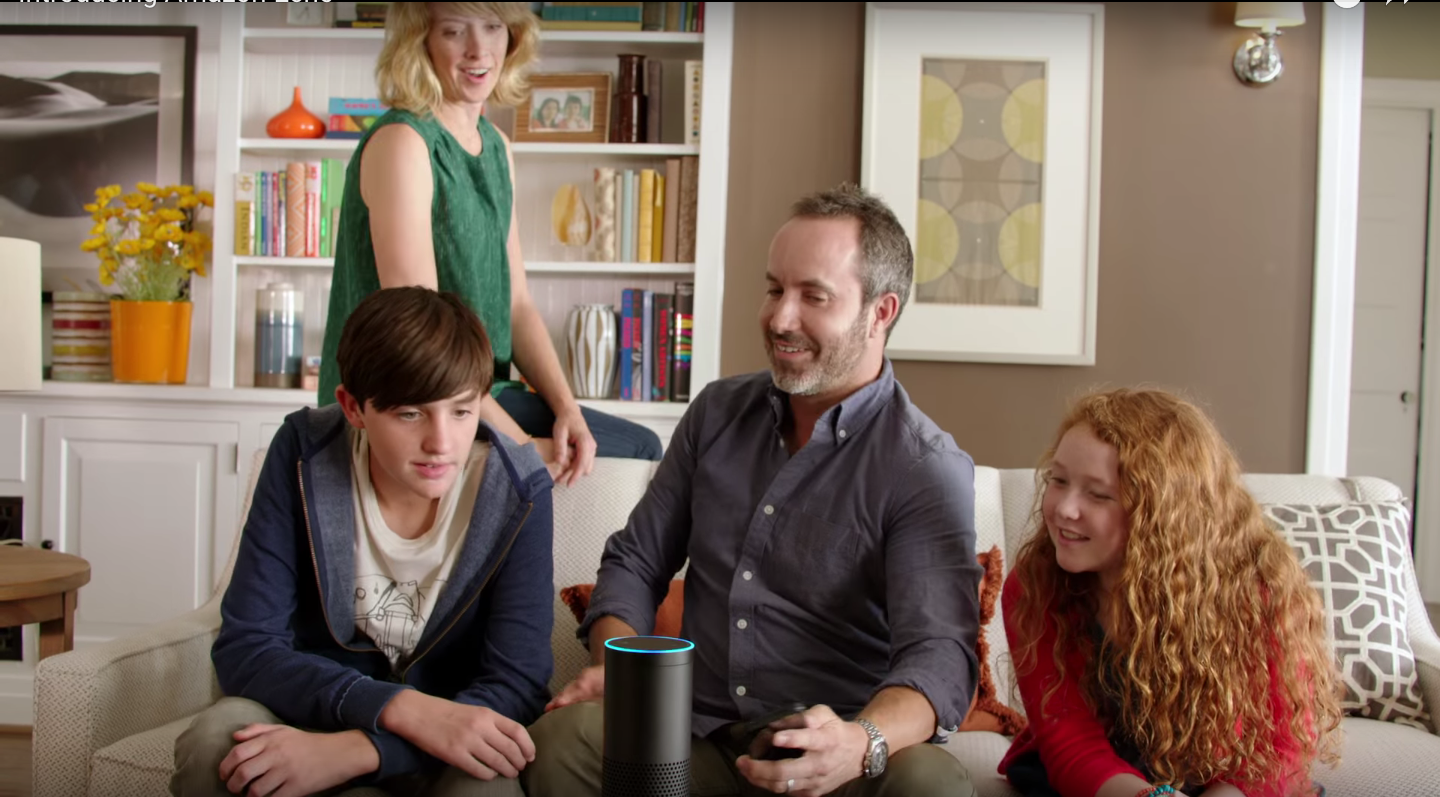Amazon's Alexa Expands As Privacy Concerns Mount
Amazon's Alexa is coming for you. The voice assistant debuted with Amazon's Echo products, expanded to Acer laptops last week, and has now reached LG's smart TVs. LG said that Alexa will be supported with this year's OLED and Super UHD television sets, and that the voice assistant will do pretty much what you'd expect, whether it's controlling video playback, flipping through channels, or searching for specific content.
A myriad of other products, from internet-connected lights to smart locks, also support Alexa. Yet along with those expansions come new privacy concerns, as shown when a Portland family discovered that Alexa had quietly sent part of their conversation to a random contact.
Privacy-minded people have long feared that voice assistants like Alexa were little more than spies in disguise. Although microphones have been part and parcel to our digital lives with smartphones, laptops, and other devices for years, many of those products weren't always listening and waiting to be activated. You had to answer a phone call, for example, or use programs that made it obvious when your microphone was actually being used.
Alexa is supposed to do the same, of course. Compatible devices are set up in a way that's supposed to ensure that listening for the activation phrase doesn't actually record every sound made anywhere near the microphone. Think of it kind of like zoning out during a boring lecture: you're ignoring whatever that lecturer is talking about until you hear your name, and then you start to actively listen and pay attention to what they say.
But it doesn't always work that way. KIRO 7 reported last week that a Portland family discovered that, unbeknownst to them, Alexa sent parts of their conversation to a contact. Danielle (whose last name was kept private) said one of her husband's employees called from Seattle to say their Alexa devices had been hacked and were sending audio snippets to that employee. That isn't exactly what happened, though, as Amazon told KIRO 7:
“Echo woke up due to a word in background conversation sounding like 'Alexa.' Then, the subsequent conversation was heard as a “send message” request. At which point, Alexa said out loud 'To whom?' At which point, the background conversation was interpreted as a name in the customer’s contact list. Alexa then asked out loud, '[contact name], right?' Alexa then interpreted background conversation as 'right.' As unlikely as this string of events is, we are evaluating options to make this case even less likely.”
We don't know how often scenarios like this happen. It's possible that Alexa has never misinterpreted as much "background conversation" as it did in this instance, but as the voice assistant reaches more and more devices, it becomes a nigh-ubiquitous network just waiting to hear "Alexa." Your laptop, TV, wireless speaker, tablet, and other gadgets and gizmos are increasingly listening to everything you and the people around you say.
Get Tom's Hardware's best news and in-depth reviews, straight to your inbox.
Most of the time that listening is harmless. But freak accidents like the one described above do happen, and eventually they'll involve more than harmless conversation about hardwood floors being sent to an employee kind enough to warn their boss about the intrusion of privacy. Alexa-compatible devices already call bedrooms, living rooms, and kitchens home; expanding to portable devices like laptops will let them wander, too.
Those fears could be compounded by intentional eavesdropping instead of accidental broadcasting. A security company called Checkmarx revealed in April that a flaw in Amazon's Echo products could let Alexa spy on its owners at all times without their knowledge. Attackers could use malicious apps (or "skills" in Amazon's parlance) to keep an Alexa recording session going long after its owner thought it had stopped listening.
Many Alexa users are probably happy to learn that the assistant is expanding to Acer's laptops and LG's smart television sets. But the news from Portland that was sandwiched in between those announcements should give people pause. At the very least, it's worth noting that you're inviting more "hot" microphones into your lives every time Amazon's assistant reaches a new device. Is the convenience worth the risk? Well, that's up to you.

Nathaniel Mott is a freelance news and features writer for Tom's Hardware US, covering breaking news, security, and the silliest aspects of the tech industry.
-
Dark Lord of Tech It's a device used to listen in on conversations ,you know that when you purchase.Reply
